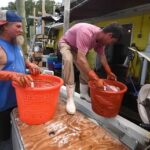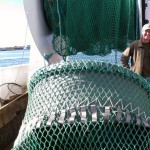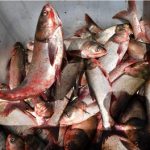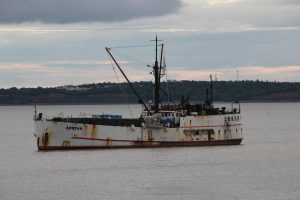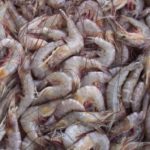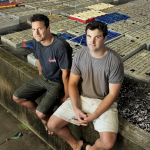Daily Archives: March 11, 2019
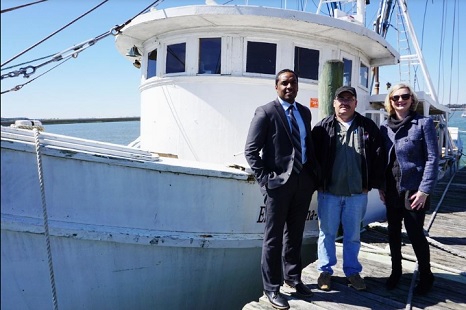
U.S. Attorney’s Office sells convicted Tybee shrimper’s boat for $15K
A shrimp boat seized in a federal fraud investigation has a new home with a North Carolina seafood company. Assistant U.S. Attorneys with the Southern District of Georgia’s Asset Recovery Unit recently completed the sale of the 80-foot trawler to Lee Bland Williams of Scranton, N.C. Williams and his wife, Madge, own Hobo Seafood, a commercial fishing operation in Swanquarter, N.C. He purchased the boat for $15,000, and said despite significant repairs, the craft needs to make it seaworthy, he plans to have it ready for this summer’s shrimping season. >click to read<19:51
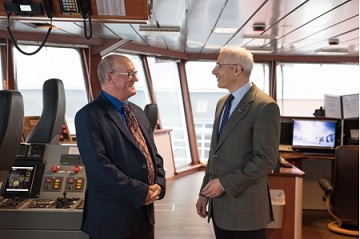
Fourteen First Nations announce landmark agreement with Clearwater on Arctic Surf Clam
Fourteen First Nations communities in Nova Scotia and Newfoundland and Labrador and Clearwater Seafoods Incorporated (“Clearwater”) (TSX: CLR) are pleased to announce they have reached a landmark agreement to the benefit of all parties. The Agreement forges a 50-year partnership that protects existing jobs in the Arctic Surf Clam fishery while creating meaningful economic, employment and capacity building for the fourteen First Nations that are adjacent to the clam resource. >click to read<19:09
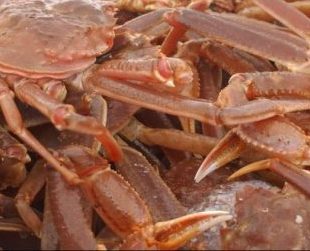
EDITORIAL: Continued suspension of snow crab fishery’s MSC certification seems excessive
Southern Gulf snow crab fishermen took on new challenges of reduced fishing area and temporary closures last year all for the sake of protecting North Atlantic right whales from potential entanglement in fishing gear. They made changes to their gear, too, and their efforts were successful. There were no reported deaths of endangered North Atlantic right whales in Canadian waters in 2018. That’s in sharp contrast to the unprecedented 12 documented deaths in Canadian waters in 2017. But it’s still not good enough for the Marine Stewardship Council. >click to read<17:32
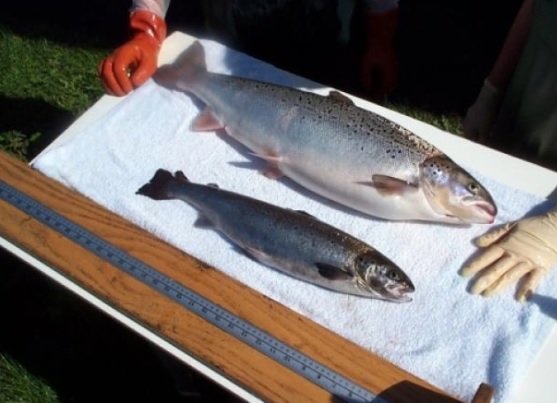
AquaBounty cleared to export genetically-engineered salmon eggs to U.S.
The U.S. Food and Drug Administration has lifted a ban on genetically-engineered salmon imports, allowing the company AquaBounty to export eggs it is producing at its facility in Bay Fortune, P.E.I. In a news release, AquaBounty’s CEO Sylvia Wulf said the company is aiming to send the eggs to its plant in Indiana, where they will be hatched and grown to market size. >click to read<14:01

The story of how salmon got to the Great Lakes, told by the man who made it happen
Close to 10 million chinook and coho salmon swim in Lake Michigan, Lake Huron and Lake Superior. There were none when Howard Tanner started as the chief of the Michigan Department of Conservation’s Fish Division in 1964. His boss, Ralph MacMullan, spent much of their first meeting lambasting the fish department for its previous lack of action and dysfunction. Heaps of dead fish were washing up on beaches, the lakes were overly commercially fished and there was little recreational fishing to speak of. He gave Tanner a mandate: “Do something. “And if you can,” he added, “make it spectacular.” By introducing salmon into the Great Lakes in the 1960s, Tanner did just that. >click to read<12:26
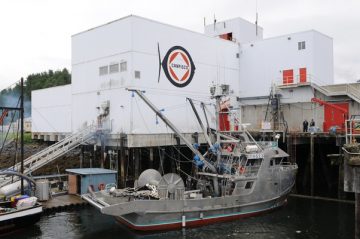
British Columbia Wild salmon plan panned by conservation groups
The B.C. government’s new wild salmon strategy is a missed opportunity, says the executive director of Skeena Wild Conservation Trust, because it does not contain strong enough measures in the one area where the province has jurisdiction: habitat protection. And the BC Wildlife Federation is concerned that, if the government adopts recommendations of the Wild Salmon Advisory Council, B.C. may follow Alaska on an over-reliance on hatchery production – something which itself may be one of the problems contributing to decreases of certain wild stock species. >click to read<11:20
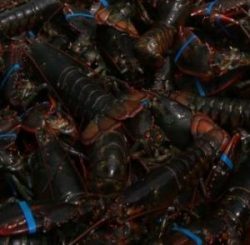
The Data Shows Record Lobster Production
Marine fisheries data show New England lobstermen are benefiting from a new golden age of lobster, thanks in large part to a warming Earth. Yet Democrats in Congress and even lobster lobbyists asserted in House climate hearings earlier in February that global warming is causing a lobster apocalypse. Thankfully, facts and scientific evidence can help us put this latest global warming scare to rest.,,, Overlooking for the moment that Democrats’ PETA allies would consider it good news if global warming were inducing lobsters to relocate to waters where lobstermen can’t reach them, let’s take a look at lobster production in Maine and the rest of New England in recent decades. >click to read<09:36

































